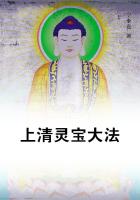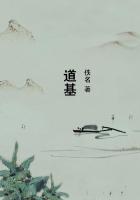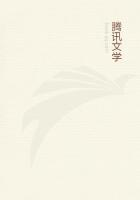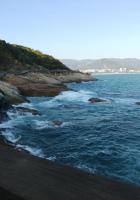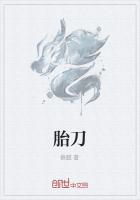On the whole--with all due deference to the opinions of my patriotic Russian friends--I must say that Volga scenery hardly repays the time, trouble and expense which a voyage from Nizhni to Tsaritsin demands. There are some pretty bits here and there, but they are "few and far between." A glass of the most exquisite wine diluted with a gallon of water makes a very insipid beverage. The deck of the steamer is generally much more interesting than the banks of the river. There one meets with curious travelling companions. The majority of the passengers are probably Russian peasants, who are always ready to chat freely without demanding a formal introduction, and to relate--with certain restrictions--to a new acquaintance the simple story of their lives. Often I have thus whiled away the weary hours both pleasantly and profitably, and have always been impressed with the peasant's homely common sense, good-natured kindliness, half-fatalistic resignation, and strong desire to learn something about foreign countries. This last peculiarity makes him question as well as communicate, and his questions, though sometimes apparently childish, are generally to the point.
Among the passengers are probably also some representatives of the various Finnish tribes inhabiting this part of the country; they may be interesting to the ethnologist who loves to study physiognomy, but they are far less sociable than the Russians.
Nature seems to have made them silent and morose, whilst their conditions of life have made them shy and distrustful. The Tartar, on the other hand, is almost sure to be a lively and amusing companion. Most probably he is a peddler or small trader of some kind. The bundle on which he reclines contains his stock-in-trade, composed, perhaps, of cotton printed goods and especially bright-
coloured cotton handkerchiefs. He himself is enveloped in a capacious greasy khalat, or dressing-gown, and wears a fur cap, though the thermometer may be at 90 degrees in the shade. The roguish twinkle in his small piercing eyes contrasts strongly with the sombre, stolid expression of the Finnish peasants sitting near him. He has much to relate about St. Petersburg, Moscow, and perhaps Astrakhan; but, like a genuine trader, he is very reticent regarding the mysteries of his own craft. Towards sunset he retires with his companions to some quiet spot on the deck to recite evening prayers. Here all the good Mahometans on board assemble and stroke their beards, kneel on their little strips of carpet and prostrate themselves, all keeping time as if they were performing some new kind of drill under the eve of a severe drill-
sergeant.
If the voyage is made about the end of September, when the traders are returning home from the fair at Nizhni-Novgorod, the ethnologist will have a still better opportunity of study. He will then find not only representatives of the Finnish and Tartar races, but also Armenians, Circassians, Persians, Bokhariots, and other Orientals--a motley and picturesque but decidedly unsavoury cargo.
However great the ethnographical variety on board may be, the traveller will probably find that four days on the Volga are quite enough for all practical and aesthetic purposes, and instead of going on to Astrakhan he will quit the steamer at Tsaritsin. Here he will find a railway of about fifty miles in length, connecting the Volga and the Don. I say advisedly a railway, and not a train, because trains on this line are not very frequent. When I first visited the locality, thirty years ago, there were only two a week, so that if you inadvertently missed one train you had to wait about three days for the next. Prudent, nervous people preferred travelling by the road, for on the railway the strange jolts and mysterious creakings were very alarming. On the other hand the pace was so slow that running off the rails would have been merely an amusing episode, and even a collision could scarcely have been attended with serious consequences. Happily things are improving, even in this outlying part of the country. Now there is one train daily, and it goes at a less funereal pace.
From Kalatch, at the Don end of the line, a steamer starts for Rostoff, which is situated near the mouth of the river. The navigation of the Don is much more difficult than that of the Volga. The river is extremely shallow, and the sand-banks are continually shifting, so that many times in the course of the day the steamer runs aground. Sometimes she is got off by simply reversing the engines, but not unfrequently she sticks so fast that the engines have to be assisted. This is effected in a curious way. The captain always gives a number of stalwart Cossacks a free passage on condition that they will give him the assistance he requires; and as soon as the ship sticks fast he orders them to jump overboard with a stout hawser and haul her off! The task is not a pleasant one, especially as the poor fellows cannot afterwards change their clothes; but the order is always obeyed with alacrity and without grumbling. Cossacks, it would seem, have no personal acquaintance with colds and rheumatism.
In the most approved manuals of geography the Don figures as one of the principal European rivers, and its length and breadth give it a right to be considered as such; but its depth in many parts is ludicrously out of proportion to its length and breadth. I
remember one day seeing the captain of a large, flat-bottomed steamer slacken speed, to avoid running down a man on horseback who was attempting to cross his bows in the middle of the stream.
Another day a not less characteristic incident happened. A Cossack passenger wished to be set down at a place where there was no pier, and on being informed that there was no means of landing him, coolly jumped overboard and walked ashore. This simple method of disembarking cannot, of course, be recommended to those who have no local knowledge regarding the exact position of sand-banks and deep pools.

